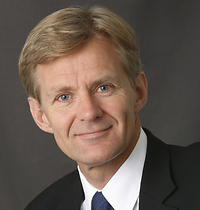However Like the picture above, we seem to have transformed that picture of eternal and infinite growth and success into a nightmare of the worst kind. Ordinary people have come to pay a high price for the excesses of the previous decades. What is worst, they have suffered the most from the measures taken to pay for those excesses. They are the ones at the receiving end of measures taken primarily to revitalise (and reinforce) the current neoliberal economic system. In fact, these measures are designed to destroy the very social achievements attained by most ordinary citizens. In this new European landscape, more social divisions, inequality and neglect have been created from the edges of the Aegean Sea to the Spanish Atlantic coast.
Then, the question we need to ask ourselves is whether we can address this new divide that impoverishes large numbers of communities all across Europe from alternative positions, which emanate from the most affected communities themselves. That is, to look at the margins; the edges of institutional and corporate power to attempt to find creative solutions to our current financial, social (and moral) crisis. This is what I want to engage here in this dialogue, thanking the organisers for their invitation.
I based this presentation and discussion on research I have been conducting in Spain, Greece and Ireland (with other colleagues), where we are exploring the everydayness of communities who have suffered a full-blown breakdown in their lives (dreams) due to the crisis and austerity measures. Equally, I do not want to forget in this presentation other communities, beyond Europe, where I have conducted ethnographic research and where similar everyday experiences are lived. As hopefully, this presentation will create an ongoing dialogue on this most important matter here in Norway, it is their imagination, resilience, humbleness and community spirit which open possibilities of other kind to address this most important problem of our time.
In this talk, I want to present some of the visual material I have collected working in these three different countries. In particular, from a city in the south of Spain, in the region of Andalusia: Seville. Here, I have worked closely with my indefatigable colleague Dr. Lucia Sell, whose enthusiasm, and activism are commendable in support of all the different communities and families who are at the forefront of these painful measures. It is also a tribute to the families and community of La Corrala la Utopía (Utopia) whose endurance to overcome what otherwise can only be described as very precarious state of living is a testament of courage. To them, I thank you for the warm welcome and sharing their experiences, experiences that I can share now with you.
Now, I do not want to exalt here a particular community in detriment of others. In parts of the world, such as Latin America, people have been living since the inception of these countries in the world as we know it, in these conditions (or even worst). I simply want to illustrate what others may have not imagine in recent years was possible to experience here in Europe. We must keep this in mind in this dialogue. Defeating poverty in one part of the world may not do anything for other deprived communities. In fact, as our prevailing economic system has demonstrated, improving the quality of life in one part of the world, may create more poor conditions of life in other regions of the world.
Thus, the question pose in this dialogue presents serious complex issues that we may not be able to fully account for here at this meeting in Norway. We equally seem to be distance from the centres of power to start offering solutions that can be applied to tackle the issue. We seem small, distance and peripheral in this dialogue. Yet, this is an opportunity and not a handicap that can create the conditions to imagine other kind of solutions and social changes to the way our societies are run. The awareness and empathy that come from knowing what these embattled communities are experiencing and what they are doing to survive may present the space and opportunity for sharing alternative ideas that can subsequently be openly discussed in virtual forums, in different languages, and can mobilise people to finally wake up to the injustices some have to suffer in order to survive. Thinking from the margins may present this unique opportunity so I am pleased to share here my ethnographic experiences and thoughts with you.
Miguel is senior lecturer at the faculty of business and law, Kingston University. He holds a BSc and PhD in Social Psychology from the London School of Economics & Political Science (LSE). Miguel has undertaken extensive (visual) ethnographic research in Latin America where he has engaged with indigenous as well as deprived communities and organisations. He has also contributed to develop similar research in parts of Africa. From this work he has co-authored the Kukiya-favela organisation and the Barefoot Entrepreneurs stories of dispossessed and marginal people who live at the periphery of the global economy. He is a keen photographer and filmmaker, believing passionately that art plays an important role in translating human experiences around the world so others can appreciate and understand them and by doing so construct more participative, sustainable and collaborative organisation and society. He can be contacted at J.Imas@kingston.ac.uk


